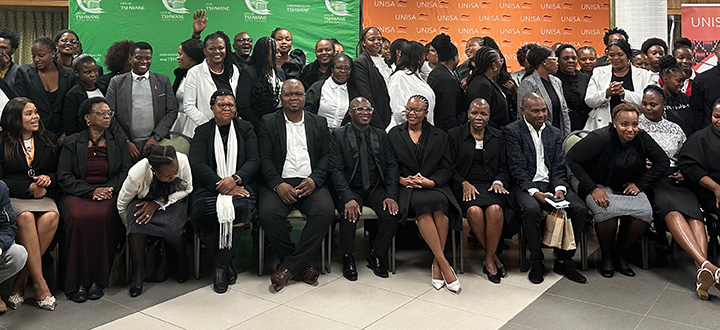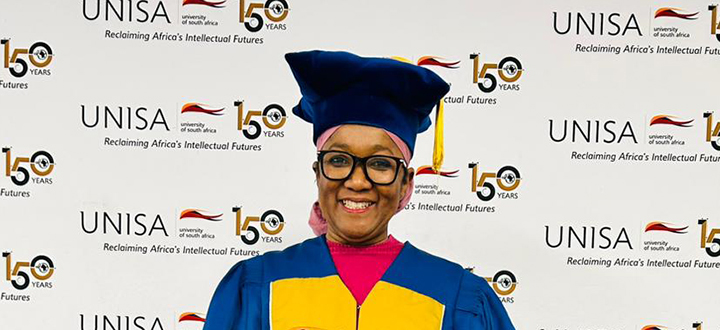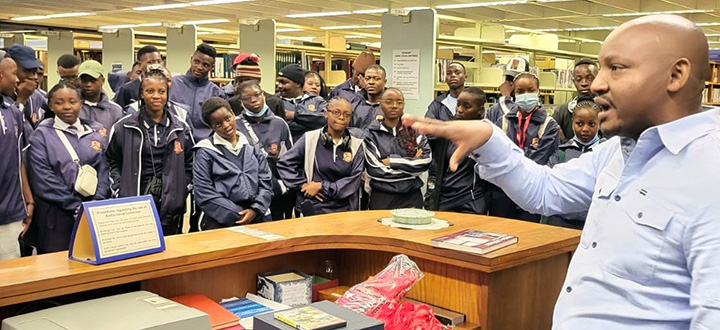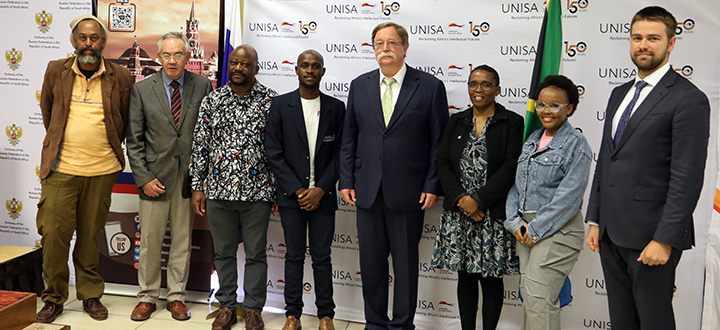College of Science, Engineering & Technology
Unisa scientist obtains R8-million Rand Water Chair

Prof Lukas Snyman is the incumbent of the new Rand Water Board Chair: Electrical Engineering at Unisa. To date, he has published 120 scientific articles and has been granted 25 patents. These range from electronic devices and sensors, applied electronic systems and prototype products in renewable energies. His list of career achievements includes Chair of Department and Director of the School of Engineering at the university.
Prof Lukas Snyman from Unisa’s Unit of Nanotechnology and Water Sustainability (NanoWS) at the College of Science, Engineering and Technology (CSET) was recently awarded a Rand Water Board Chair: Electrical Engineering. The chair was allocated after a rigorous bidding process that considered candidates from top ranking universities in South Africa. One of six awarded, the contract, which is valued at R8 million, will run for a period of five years.
Snyman is considered a senior scientist with about 10 years of experience in research and development in scientific environments (physics and applied mathematics). In addition, he has 20 years of experience in engineering disciplines (opto-electronic devices, telecommunications, innovative electronic products, electrical engineering systems, renewable energy and entrepreneurship).
Unisa won this Chair among top ranking universities in the country, which is a tribute to the university’s expertise and facilities. In particular, the NanoWS research unit at the Johannesburg Science Campus is highly regarded.
A researcher par excellence and an esteemed scientist, Snyman is excited about the award. "I see this as an opportunity to transfer some of my expertise and gained knowledge over the years in a future management environment and to facilitate team-building actions where Unisa’s knowledge, expertise, and university facilities can be made available to make a direct impact on the surrounding infrastructure and communities," he said.
As a university fully engaged and strongly rooted in its mission to support national development and social justice, Unisa strives to actively develop strong relationships with communities and various stakeholders for the improvement of life and scholarship, which makes the institution a vehicle for social transformation.
Snyman intends to employ an approach that will be based on addressing the immediate needs of the Rand Water Board in the discipline of Electrical Engineering. To achieve this, he will extensively select team members from existing human resources in the CSET environment, and direct various practical projects where both university expertise as well as students can make immediate impact in addressing the needs.
Applied and relevant to society
Some interesting areas Snyman has in mind for the Chair include the following:
- Deploying an extensive monitoring telecommunications infrastructure and accumulating data through modern telecommunications means involving a combination of cellular and radio frequency systems using data telemetry to monitor and even control machinery at pipelines, pump stations, water treatment plants and reservoirs.
- Deploying renewable energy systems to provide power to local systems and make them more reliable and independent of the Eskom grid supply.
- Deploying an extensive student internship programme whereby after two or three years of theoretical training at Unisa, students will do infrastructure maintenance and smaller development projects in the Rand Water Board catchment and distribution area. These include larger dams such as Sterkfontein, Lesotho Highlands and the Vaal Dam local distribution area.
This project will be applied and relevant to society. The research outputs will be published in applied research journals and disseminated to commercial journals, among other platforms. Unisa will thus use the opportunity to make great contributions to addressing challenges faced by Rand Water.
Given the water challenges the board currently has, the Chair will make an immediate impact on greater reliability in terms of water supply and reducing water wastage, while raising greater awareness of water issues in the public and conserving and better managing water supplies to the Gauteng area. In addition, it will also address electricity supply to pipelines, pump stations, and reservoirs and control of water supplies, as well as implementing new technologies that will address challenges around these issues.
The university is proud of Snyman’s achievements, and particularly looks forward to providing a research platform that promotes research excellence in this field. Through this Chair, Unisa will contribute to the knowledge and information society, while advancing development and nurturing a critical citizenry on water sustainability.
* By Tshimangadzo Mphaphuli, Senior Journalist, Department of Institutional Advancement
More reading:
Publish date: 2020-02-28 00:00:00.0

 Unisa academics join hands to celebrate World Social Work Day
Unisa academics join hands to celebrate World Social Work Day
 Unisa community engagement initiative targets school underperformance
Unisa community engagement initiative targets school underperformance
 Library tour introduces learners to the wonderful world of Unisa
Library tour introduces learners to the wonderful world of Unisa
 Unisa Radio volunteer wins prestigious community journalism award
Unisa Radio volunteer wins prestigious community journalism award
 Unisa's student leadership engage with Russian ambassador
Unisa's student leadership engage with Russian ambassador